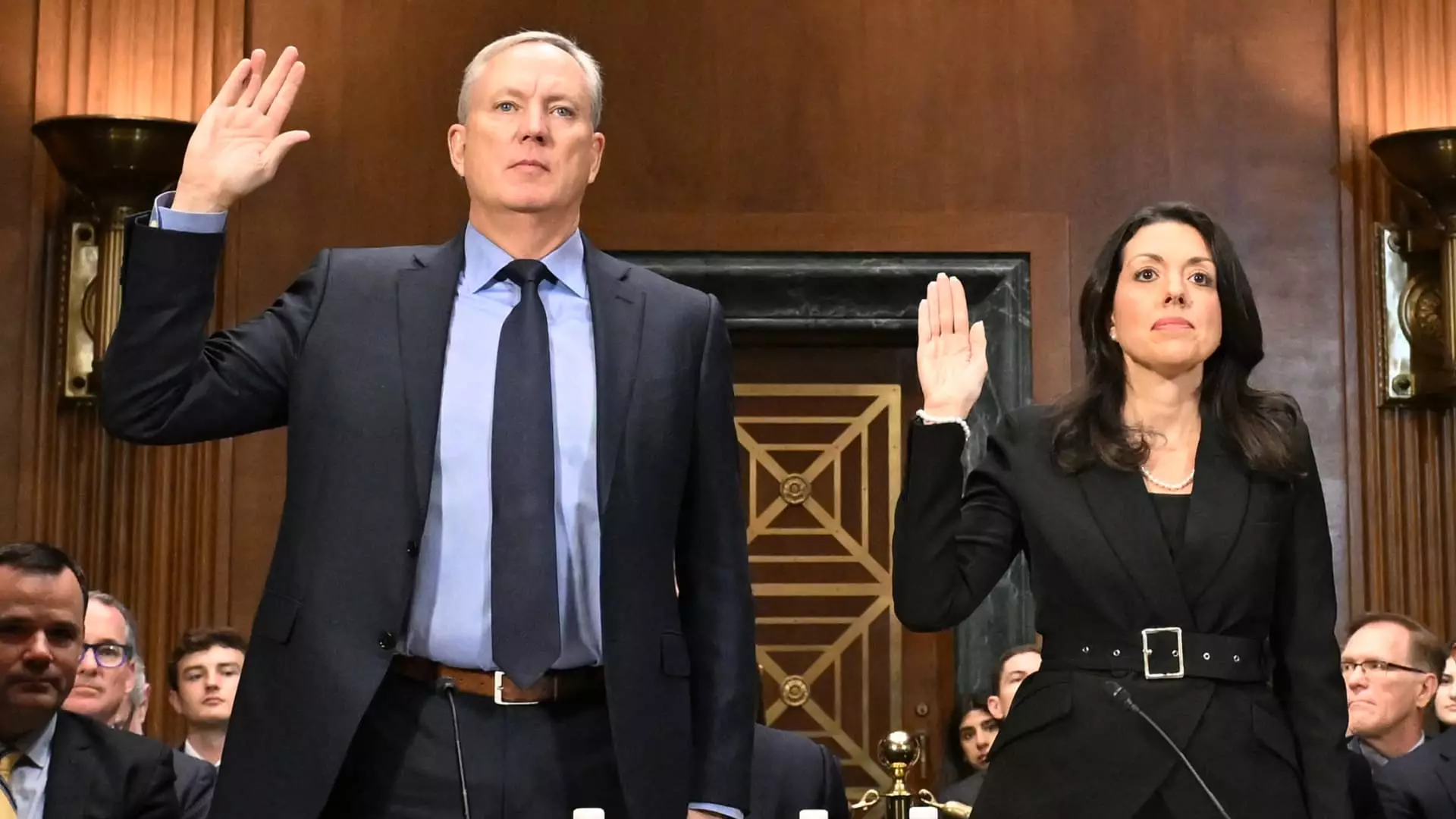The current landscape of credit card processing has brought to light a significant challenge faced by small businesses across America. The alleged duopoly of Visa and Mastercard, which dominate the payment processing arena, has raised concerns about fair competition and the impact of interchange fees on retailers. On Tuesday, the Senate Judiciary Committee convened a crucial hearing on this issue, highlighting bipartisan concerns and the urgent need for reform.
The Bipartisan Concern: A Problem for All
During the hearing, committee chair Senator Dick Durbin, a Democrat from Illinois, emphasized that addressing the grip of Visa and Mastercard on the market is not a partisan issue. His remarks underline a rare consensus: members from both conservative and liberal backgrounds recognize that the existing system disadvantages small businesses that lack the leverage to negotiate interchange fees effectively. The interchange fees, which can often represent the second-highest expense after wages for many retailers, are fees that merchants pay to the cardholder’s bank whenever a customer uses their credit card. In a market where Visa and Mastercard claim 80% and generate massive annual revenues from these fees, the question of fairness has become urgent.
Senator Durbin noted that the combined revenue from interchange fees exceeds $100 billion annually. This situation raises alarm, particularly among small business owners who are unable to absorb such costs without passing them onto consumers. The proposed Credit Card Competition Act, co-sponsored by Durbin and Republican Senator Roger Marshall, aims to break this cycle by mandating that banks of significant size must provide alternative payment networks. This legislative initiative seeks to empower small merchants, allowing them to choose more affordable processing options rather than being confined to the prevailing duopoly.
Contrary to the arguments made by many legislators and small business advocates, representatives from Visa and Mastercard defended their practices during the hearing. Bill Sheedy, a senior advisor for Visa, framed interchange fees as essential incentives for adopting advanced technology and ensuring consumer protections like fraud prevention and customer service provisions. The suggestion was clear: lower fees might undermine these safeguards, potentially harming consumers in the process.
Both Visa and Mastercard expressed explicit concerns regarding the Credit Card Competition Act. They argued that the act could disrupt the balance of consumer control over payment choices, decrease actual competition, and inadvertently favor certain companies over others, creating a new set of inequalities. Mastercard’s President of the Americas, Linda Kirkpatrick, cited past experiences with debit card fee regulations that allegedly led to worse outcomes for consumers by diminishing rewards, increasing fees, and constraining market competition.
The Ripple Effect on Consumers: Understanding Swipe Fees
The ongoing debate about interchange fees is not just about businesses; it is indeed a consumer issue. The National Retail Federation highlighted in its recent communications with the committee how high swipe fees ultimately translate into inflated prices for consumers. A significant portion of consumer spending indirectly funds these fees, which often go unnoticed in everyday transactions. Roger Alford, a law professor at Notre Dame, shed light on the surprising impact of swipe fees, revealing that the average American spent over $1,100 on these fees last year, surpassing expenditures on pets, coffee, or alcohol. This statistic underscores the need for consumers to recognize the hidden costs embedded in their purchases.
In response to rising criticism, Visa settled for $30 billion to adjust its swipe fees slightly. However, this settlement was challenged in court and rejected, calling into question whether the changes were sufficient. Furthermore, Visa is now also facing legal scrutiny from the Department of Justice over claims of maintaining an illegal monopoly in debit card processing—a situation that may exacerbate the current concerns surrounding the credit card duopoly.
The focus on the Credit Card Competition Act is crucial as legislators grapple with the broader implications of maintaining a competitive marketplace for payment processing. The introduction of alternative networks for large banks is a significant step towards addressing the imbalance that has long favored major card companies. This new legislative environment aims to enhance market competition, thereby increasing options for both merchants and consumers. By doing so, it hopes to alleviate some financial burden on retailers and subsequently, consumers.
As discussions continue regarding the implications of interchange fees, the moral of the story remains clear: action is needed to ensure that small businesses are not left in a perpetual struggle against the formidable influence of Visa and Mastercard. With bipartisan support building around this issue, there exists an opportunity to foster a more equitable economic environment that ultimately benefits the broader community of consumers and entrepreneurs alike. Robust measures are essential to reshape the future of credit card transactions in America and to establish an economy characterized by genuine competition and fairness.

